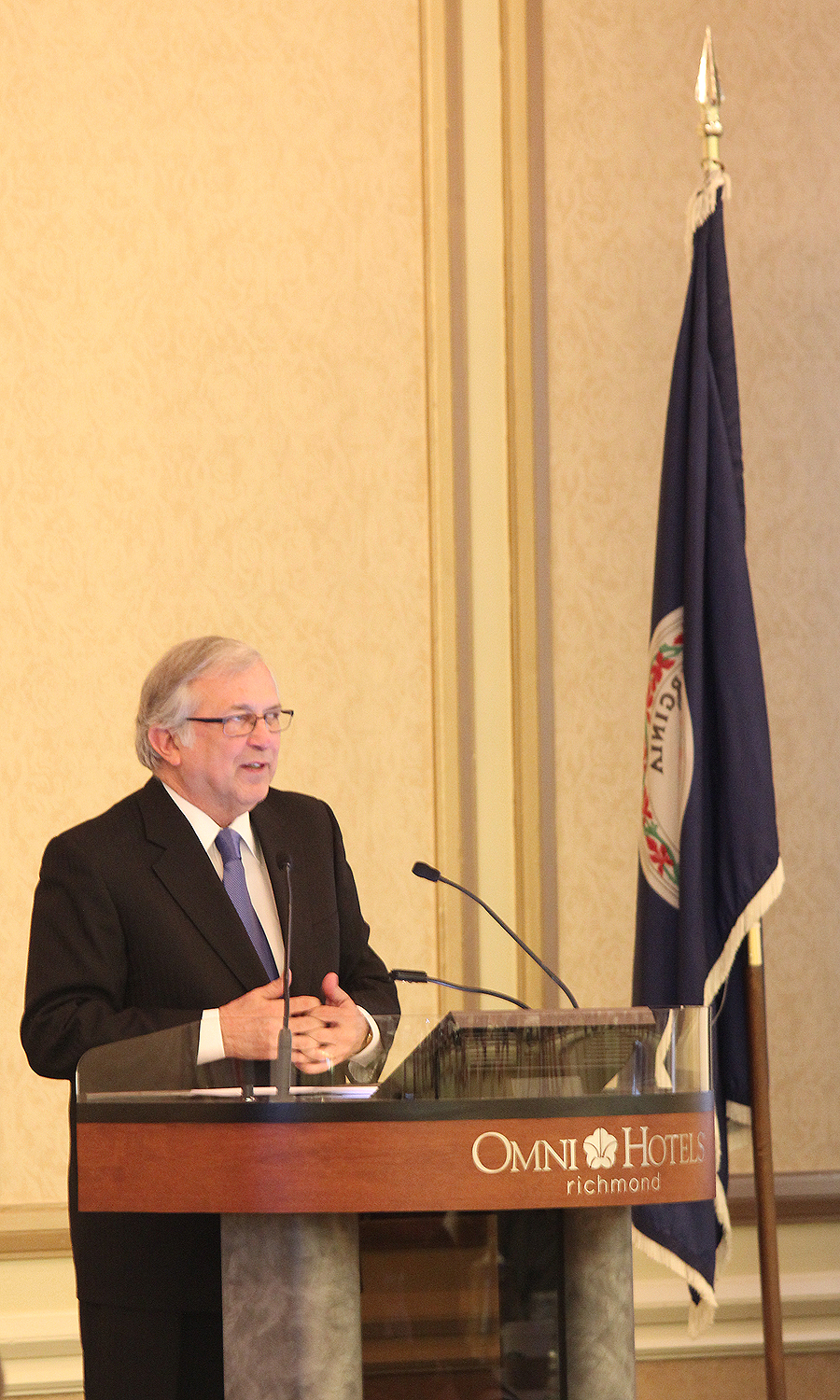Virginia Tech plays pivotal role in boosting state's agricultural exports

When Virginia Gov. Bob McDonnell recently announced a second year of record agricultural trade export figures for the state, he recognized the vital role that Virginia Tech plays in helping expand and diversify the commonwealth’s largest industry.
“Virginia Tech has been a remarkable source of expertise” in everything from developing new strains of crops to helping the commonwealth’s burgeoning wine industry grow, McDonnell said at the Governor’s Conference on Agricultural Trade, which was held in Richmond, Va., earlier this month. The event was hosted in part by the College of Agriculture and Life Sciences’ Department of Agricultural and Applied Economics.
The state’s 2012 agricultural exports were valued at $2.61 billion, a figure that shattered 2011 numbers, which set a record at the time. Since 2010, agricultural and forestry exports have increased 17 percent. Soybeans, lumber, tobacco, wheat, and pork — all commodities with which Virginia Tech is involved through research and extension — were among the top export products.
During his speech at the conference that was attended by agribusiness leaders, international trading partners, and high-ranking export trade officials, Virginia Tech President Charles W. Steger highlighted the research that the university is undertaking to help feed a swelling global population while addressing issues such as pollution and water shortages.
“We have the commitment and competitive ability to assist our agricultural constituents to prosper and meet the challenges of the 21st century,” Steger said. “We are developing cutting-edge technologies to enhance profitability, promote food safety, convert agricultural products into biofuels, and enhance the viability of our farmers.”
Steger cited Virginia Tech researchers’ work to develop new cultivars of grains, help address restrictive trade barriers, and create profitable international soybean niche markets as some of the ways the university is assisting the state’s agriculture and forestry industries.
“We remain deeply committed to the future of our agriculture and forest industries around the commonwealth, the country, and the world,” Steger said. “This is an exciting time to be involved in agriculture.”
Virginia Tech researchers are deeply involved in many of the products that are driving the export figures McDonnell highlighted during the conference.
“It’s not coincidence that the grain, soybeans, pork, and other products that our college’s researchers are working on are among the state’s biggest export commodities,” said Alan Grant, dean of the College of Agriculture and Life Sciences. “We want to help agribusinesses in the commonwealth — and around the world — find ways to increase productivity while dealing with the challenges that face their businesses today.”
Speakers at the conference addressed everything from the impact of the Panama Canal expansion on Virginia exports to how farmers can establish markets in foreign countries. But the one theme that ran though the conference was how agribusiness opportunities in the U.S. and around the world are only going to grow with the expansion of a worldwide middle class that has an increasing purchasing power.
“This is the golden era of agriculture,” said J.B. Penn, chief economist with John Deere. “This is the best period we have ever seen in the history of agriculture.”
Virginia Secretary of Agriculture and Forestry Todd Haymore emphasized that the governor is committed to putting mechanisms in place to help the commonwealth’s agriculture and forest industries continue to expand long after he has left office.
“He wants to make sure that agriculture and forestry remain a part of our growth,” he said.
Haymore and other industry leaders at the event routinely acknowledged the role that Ambassador Richard Crowder, a professor of agricultural and applied economics, plays in not only organizing the annual conference but also in promoting Virginia agriculture around the world.
Crowder told the Virginia Tech students who were among the more than 170 attendees at the conference that they are poised to be part of a rapidly growing industry.
“This is your century,” Crowder said. “This is going to be a heck of a run. If you look at food production and agricultural trends around the world, this is the place to be.”
Olivia Movafaghi from Hollis, N.H., an accelerated masters student in agricultural and applied economics, said the conference reinforced the reasons she wants to go into agriculture and start her own farm.
“It seems like agriculture used to be a futile industry with farmers’ wages on the decline. But now with population and incomes growing, this brings a lot more opportunities to farmers,” she said. “This is so exciting.”
The conference was co-hosted by Virginia Tech, Virginia Farm Bureau Federation, Virginia Port Authority, and Virginia Department of Agriculture and Consumer Services.








